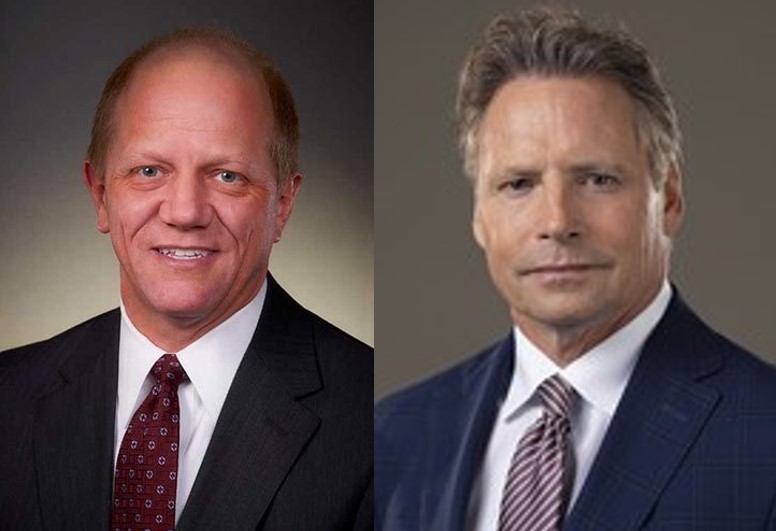ST. LOUIS - An average of more than $60,000 will be paid out to plaintiffs claiming they were harmed by the weedkiller Roundup, but it is unclear how the money will be divided up. Lawyers for plaintiffs, on the other hand, will receive between 25 and 33 percent in fees, or close to $3 billion, plus costs.
Approximately 90,000 claimants, or 75 percent of the estimated total, are covered under an agreement between Bayer and plaintiff attorneys, announced last week.
Bayer said it has agreed to pay between $8.8 billion and $9.6 billion to resolve the majority of existing lawsuits linked to Roundup and its key ingredient, glyphosate. Another $1.25 billion will be set aside to support a separate class agreement to address potential future litigation.
Plaintiffs claim they contracted non-Hodgkin's lymphoma (NHL), or other cancers, after using the weedkiller, first introduced to the market by St. Louis headquartered Monsanto, which was acquired by the German company Bayer in a $60 billion deal in 2018.
Bayer said the settlement does not include any admission of liability or wrongdoing. Three Roundup cases that have gone to trial will continue through the appeals process and aren't covered by the settlement, the company added.
"In the company’s risk assessment, potential negative outcomes of further litigation, including more advertising and growing numbers of plaintiffs, upwards of twenty trials per year and uncertain jury outcomes, and associated reputational and business impacts, likely would substantially exceed the settlement and related costs," according to the company.
“First and foremost, the Roundup settlement is the right action at the right time for Bayer to bring a long period of uncertainty to an end,” said Werner Baumann, Bayer's chief executive officer.
"It resolves most current claims and puts in place a clear mechanism to manage risks of potential future litigation. It is financially reasonable when viewed against the significant financial risks of continued, multi-year litigation and the related impacts to our reputation and to our business."
Some of the settlement money will be used to fund a scientific panel that will continue try to find out whether glyphosate causes cancer, though the U.S. Environmental Protection Agency and other science-based research agencies have concluded multiple times that glysophate does not cause cancer.
St. Louis City and County courts host the vast majority of Roundup litigation, though the three trials resulting in plaintiff verdicts have played out in California courts. Several St. Louis-based cases that had been on the verge of going to trial, were continued at the eleventh hour amid settlement talks.
A St. Louis lawyer representing plaintiffs not included in the settlement said what Bayer offered was "insultingly low." James Onder told the Insurance Journal that he was keeping his 24,000 cases out of the settlement.
“The unsettled legal exposure for Bayer could easily exceed tens of billions of dollars as our firms and others have rejected the minuscule offers accepted by some other lawyers,” Onder said in an email to the Insurance Journal.
“To act as if one quarter of the Roundup cancer victims don’t exist is nothing more than a flagrant attempt by Bayer to manipulate its stock price and serves as a slap in the face” to those victims, Onder added.
However, another St. Louis-based firm representing a large chunk of plaintiffs, Holland Law Firm, praised the settlement, saying it was "a great result, especially considering all of the risks going forward, risks like preemption and the unprecedented backlog of court cases as a result of COVID-19 and no civil jury trials for the foreseeable future.”
A lawyer for the firm, Patrick Dowd, though, cautioned that cases in the proposed settlement face great uncertainty in court, including preemption, a legal defense that "could wipe out any failure to warn claim."
Dowd pointed to a federal court in California, which held that the state's Proposition 65 cancer warning on Roundup to be misleading and inaccurate.
In Bayer's announcement on the proposed Roundup settlement, the company also said it would pay around $650 million to resolve a class action claiming PCBs produced by Monsanto led to water contamination. It also agreed deals with the attorneys general of New Mexico, Washington state and Washington, D.C., to pay a combined $170 million to settle similar claims.
In addition, Bayer will also pay $400 million to resolve multi-district litigation in the U.S. District Court in eastern Missouri claiming its dicamba herbicide caused damage to crops. This settlement does not include an award to a Missouri peach farm of $265 million, which is being appealed.
A three-judge panel of the 9th U.S. Circuit Court of Appeals ruled on June 3 that the EPA understated the risks of dicamba, which is sprayed on genetically modified but then drifts on to neigboring farms, allegedly destroying them.
The company said the announcement that it was abandonding plans to build a factory in Louisiana, an investiment of close to $1 billion, was not connected to the court ruling but more to do with global oversupply of dicamba.
